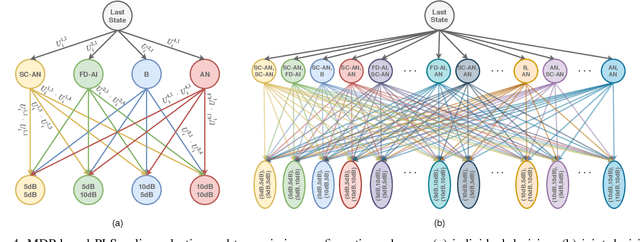An Adaptive Multi-Agent Physical Layer Security Framework for Cognitive Cyber-Physical Systems
Paper and Code
Jan 07, 2021



Being capable of sensing and behavioral adaptation in line with their changing environments, cognitive cyber-physical systems (CCPSs) are the new form of applications in future wireless networks. With the advancement of the machine learning algorithms, the transmission scheme providing the best performance can be utilized to sustain a reliable network of CCPS agents equipped with self-decision mechanisms, where the interactions between each agent are modeled in terms of service quality, security, and cost dimensions. In this work, first, we provide network utility as a reliability metric, which is a weighted sum of the individual utility values of the CCPS agents. The individual utilities are calculated by mixing the quality of service (QoS), security, and cost dimensions with the proportions determined by the individualized user requirements. By changing the proportions, the CCPS network can be tuned for different applications of next-generation wireless networks. Then, we propose a secure transmission policy selection (STPS) mechanism that maximizes the network utility by using the Markov-decision process (MDP). In STPS, the CCPS network jointly selects the best performing physical layer security policy and the parameters of the selected secure transmission policy to adapt to the changing environmental effects. The proposed STPS is realized by reinforcement learning (RL), considering its real-time decision mechanism where agents can decide automatically the best utility providing policy in an altering environment.
 Add to Chrome
Add to Chrome Add to Firefox
Add to Firefox Add to Edge
Add to Edge